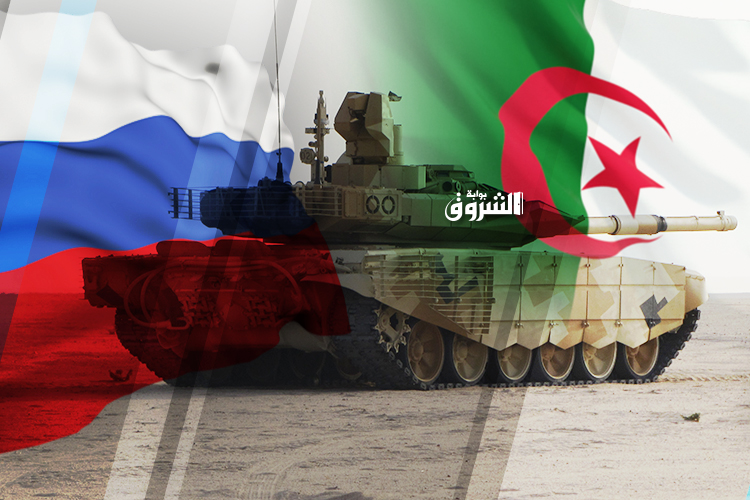Carnegie Institute: “Algerian-Russian Relationships Improve After Moscow’s Decision To Cancel Debts”

For the past 15 years, Russia has sought to regain its influence in North Africa and, in order to strengthen its presence in a region that “interacts more frequently with the United States and the European Union, Moscow has shown its ability to seize opportunities through military cooperation, energy and trade diplomacy”, the Carnegie Institute for Political Studies said.
In a paper titled, “The Moscow Moment in the Maghreb”, the researcher Dalia Ghanem Yazbeck said that the military-security cooperation is the most advanced form of cooperation between Russia and North Africa. Russia has increased its military expenditures in the region and continues to attract countries of the region, especially Egypt and Algeria, with weapons at reasonable prices”.
“Algeria, the long-time ally of Moscow, is one of the top five buyers of Russian weapons; receiving more than 80% of its military equipment from Russia.
“In 2006, Moscow exempted Algeria from a $ 4.7 billion debt that Algeria owed to the Soviet Union, allowing the two countries to improve their relationships and consolidate their political and economic cooperation. In the same year, Algeria signed an agreement with Russia to obtain tanks, fighters, missile systems and other equipment, worth $ 7.5 billion.”
“In 2016, Algeria accounted for 10% of Russian arms exports. In fact, between 2012 and 2016 there was a 277% increase in the value of arms that were sold to Algeria, and Russia is the main supplier in this area. Military equipment shares accounted for two-thirds of the trade between the two countries, which rose from $ 700 million in 2007 to $ 4 billion in 2016”.
The researcher questioned Moscow’s cooperation with North African countries in the field of energy and said; “Russia has also expanded its cooperation with North African countries to meet the energy sector. The Kremlin signed several agreements on civilian nuclear energy to consolidate its foothold in the region over the long term”.
“In October, 2017, the Russian State Atomic Energy Corporation (ROSATOM) signed a memorandum of understanding with Morocco’s Ministry of Energy, Minerals and Sustainable Development on the use of nuclear energy for peaceful purposes. Rosatom also signed another memorandum of understanding with Algeria’s Atomic Energy Commission, and both countries intend to build an atomic station that is equipped with a compressed water reactor by 2025, and in November 2015, Russia also signed an agreement to build a nuclear power plant in Egypt, which was completed in 2017 by concluding a long-term maintenance contract”.
The report concluded; “Russia is diversifying its ties to a large extent in North Africa, and while energy cooperation remains uncertain because of the high cost of the projects and the time it takes to complete them, military cooperation is likely to continue, but the influence of the Kremlin should not be exaggeratedly described, because North Africa is not a Russian priority, but it is certain that the European Union and the United States must adapt to the expanded presence of the Kremlin in North Africa in the coming years.”








